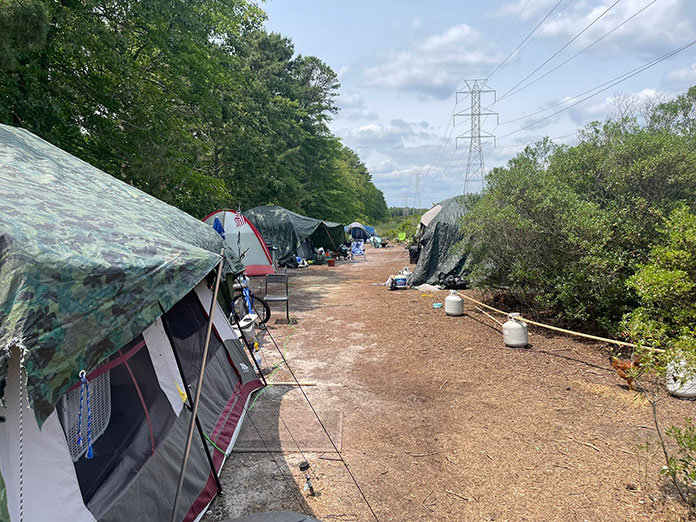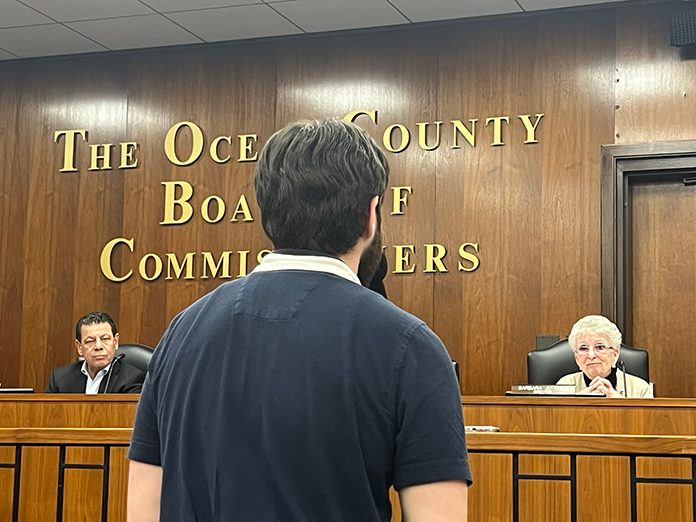
TOMS RIVER – A home is a place of comfort, stability, and love for many children. But for countless young adults aging out of the system, any glimmer of that security seemingly goes away. Confronted with an uncertain future and lacking adequate preparation or support, these individuals are abruptly thrust into adulthood without a safety net.
The Ocean County Commissioner’s recent dedication of $12.5 million in American Rescue Plan Act federal funding is aimed at addressing homelessness.
In Part II, the focus shifts to a crucial initiative: the Young Adult Bridge Housing Program. This project addresses the needs of one of the most vulnerable populations – youth aging out of the system.
Many overlook what happens to children once they age out of foster care or group homes. State law mandates that the Department of Children and Families provide services to individuals aged 18-21 who were receiving services at age 16 or older. However, many young people who age out of the system lack the ability to become independent and productive adults.
One of the major goals of Young Adult Bridge Housing is to provide young people with a solid start and clear direction. To be considered for this project, applicants had to meet specific criteria. The funding must be used to purchase, renovate, or rehabilitate property designated for bridge housing within the publicly funded care system. Leasing was not an option.
Bridge housing is defined as temporary housing that includes supportive services for up to 24 months. Program operators must maintain the property in good condition for at least 20 years while running a youth-focused program in the space. They must also adhere to applicable governmental standards.

“Bright Harbor submitted a wonderful proposal that actually included all of the elements that our Youth Services people talk about as far as farm to table,” said Dr. Tracey Maksel, Director of Human Services. “Incorporating workforce development is by way of raising some of the animals, rehabbing with veterinarian technicians and learning basic adult daily living skills in a transitional housing environment.”
A $5 million contracted to Bright Harbor Healthcare (formerly known as Ocean Mental Health Services) will allow the non-profit to provide the Department of Human Services with Young Adult Bridge Housing. The contract runs from July 2, 2024, to June 30, 2026.
Bright Harbor’s program will offer a lifeline to young adults between the ages of 18-24 who are at risk of being homeless or are already unhoused. The initiative will provide crucial support for up to 15 individuals at a time. Participants will gain valuable skills and work towards self-sufficiency through a unique approach that combines on-farm living and work experience.
Kimberley Veith, CEO of Bright Harbor, detailed the phased plan for the Young Adult Bridge Housing Program. Establishing the initiative begins with acquiring suitable property – ideally a working farm with a large house.
Initially, participants will live in the main farmhouse building as the shelter component, which is the first step in transitional living. They will receive support and guidance concerning their goals, including assistance in determining whether they want to continue their education or find a job that matches their skill sets.

Veith emphasized the program’s focus is on abilities rather than disabilities. “People have all kinds of innate abilities,” she said. “If we focus on strengthening those, we’ll go a lot further as a society. It’s about teaching a man to fish rather than handing him a fish.”
Participants in the program will also learn agricultural skills and the importance of sustainability.
“Once they’ve demonstrated they’ve started to work towards independent living,” said Veith. “They’ll move on to the next phase.”
The plan includes the establishment of ten tiny homes on the farm, where participants can stay for an extended period. They will either receive vouchers or pay rent, much like any other adult, while transitioning further to a goal of complete independence.
In the final phase of the initiative, participants will move off the property. They will continue to receive follow-up support to ensure a smooth transition and to provide assistance if they need to return or require additional help.
Referrals for the program will come from various sources, including the Division of Child Protection and Permanency (DCPP), addressing the needs of young people aging out of foster care or group home placements.
“We’ll take referrals from anywhere,” Veith said, recalling a case where an Ocean County Sheriff’s officer sought help for a 21-year-old found sleeping outside. “Some of our ideas for this actually came from that experience.”







